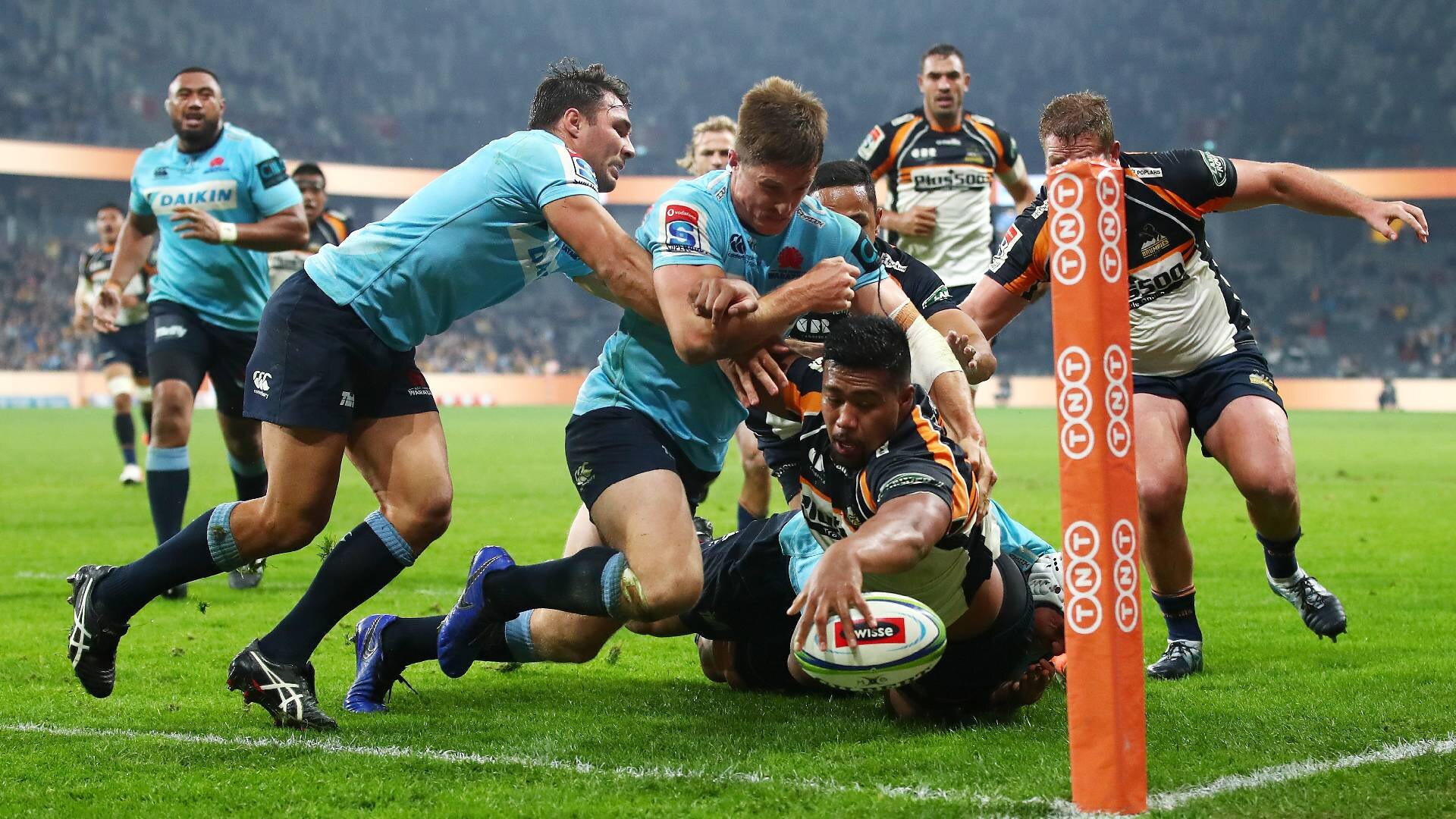Super Rugby Australia set to trial laws further blurring the lines between union and league

With New Zealand and Australia both launching their own Super Rugby competitions for 2020 in the coming months, the respective unions have the opportunity to trial laws which should improve the product on offer for players and fans alike.
Earlier this week, The Breakdown on Sky Sports revealed the rule changes for the Super Rugby Aotearoa competition, which include reducing the impacts of red cards, increasing the pace of breakdowns and introducing a 10-minute golden point period at the end of any tied games.
The Sydney Morning Herald have reported that Super Rugby AU, the competition featuring Australia’s four Super Rugby sides as well as the Western Force, will also feature a number of changes which seem to be targeting the league-loving fans in Australia.
The first law adoption sees the introduction of a ’50-22′, the union equivalent of rugby league’s 40-20.
Under the rule, attacking teams will receive a lineout throw if they kick the ball from within their own half into touch inside their opponent’s 22, providing the ball takes a bounce before heading out of bounds.
An attacking lineout will also be awarded if a team can kick the ball from inside their 22 into touch after bouncing inside the opponent’s half.
The other new rule changes would significantly impact defending the goal line, with dropouts taken from the try line instead of the 22-metre if the defending player touches the ball down inside the goal area. This would incentivise the attacking team putting contestable kicks into the goal area while another law adjustment would see a goal line kick-off taken if the attacking team is held up over the goal line, thus discouraging endless pick-and-gos.
Super Rugby AU also plans to adopt the same red card rule as the New Zealand competition, which would allow a team to replace a player that’s been sent-off after a 20-minute interval.
The proposed changes would eliminate some of the key distinctions between rugby union and rugby league, which could encourage die-hard league fans to take another look at union but also possibly alienate some die-hard union fans.

























































